North Carolina Rental Agreement

A North Carolina rental agreement is a legal contract between a landlord and a tenant to rent a property. North Carolina landlord-tenant law governs these agreements.
North Carolina Rental Agreement Types
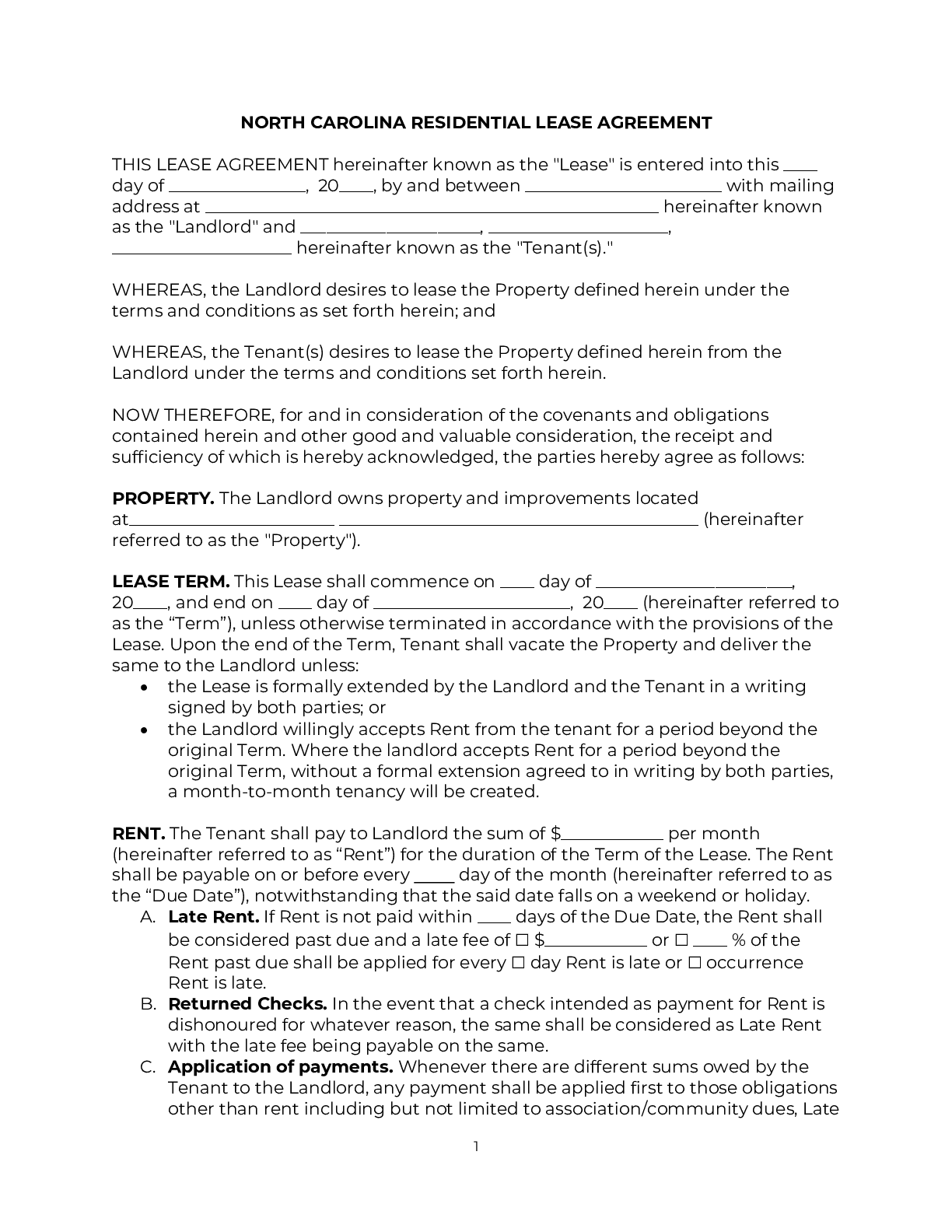
A North Carolina residential lease agreement is a legal contract for a tenant to rent a residential property from a landlord, subject to terms and conditions agreed by all parties.
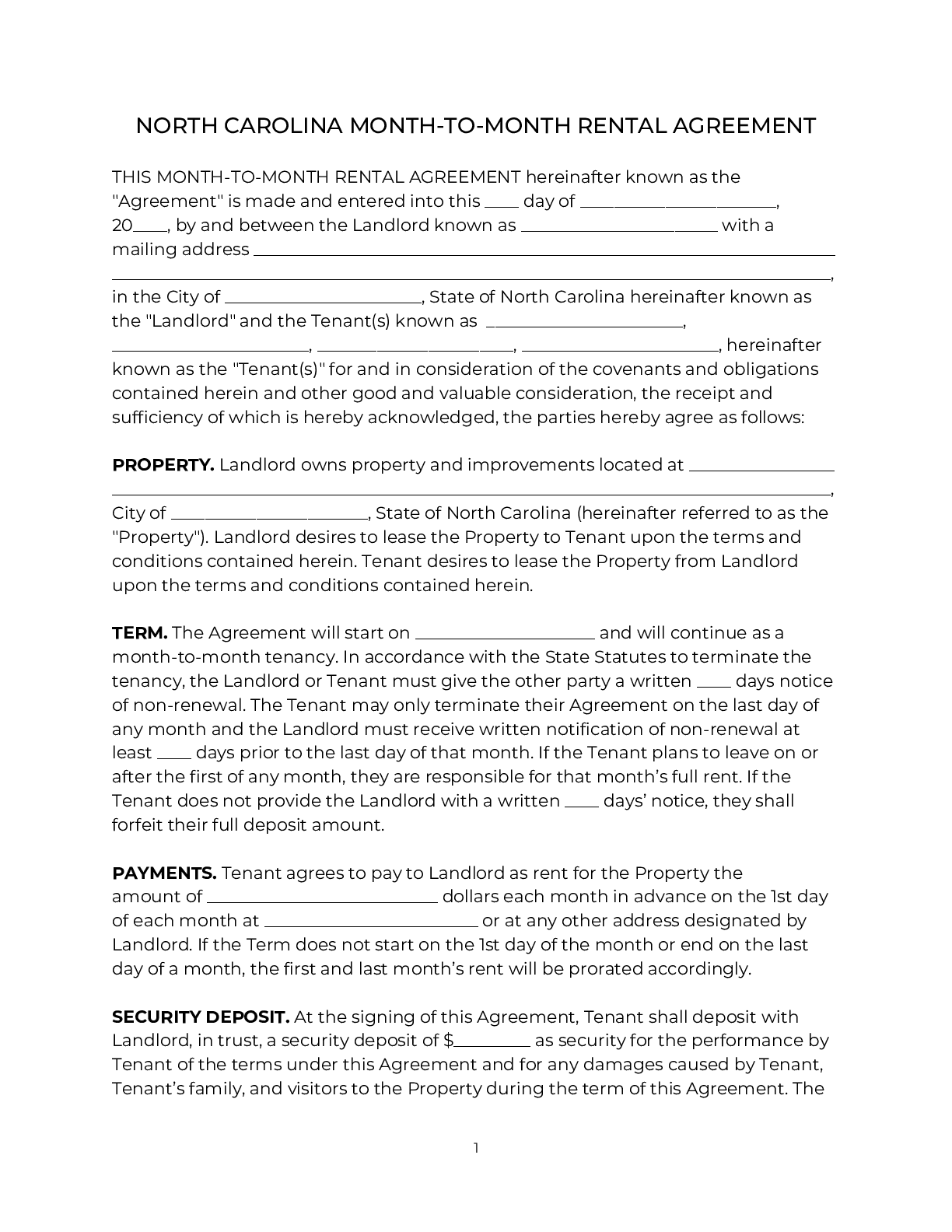
A North Carolina month-to-month lease agreement is a contract (written or oral) where a tenant rents property from a landlord. The full rental term is one month, renewable on a month-to-month basis.
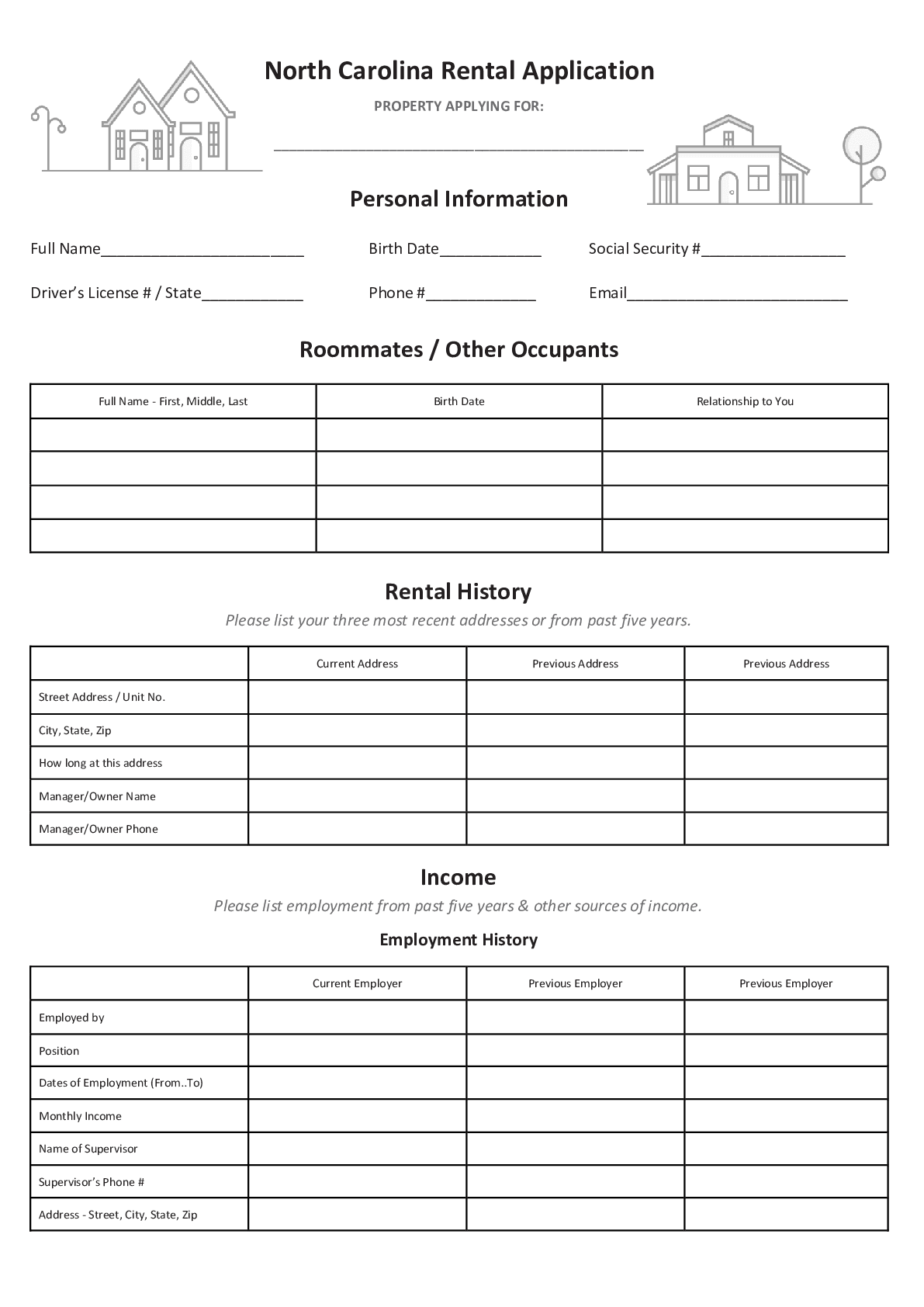
North Carolina landlords may use a rental application form to screen prospective tenants. A rental application collects information relating to finances, rental history, and past evictions.
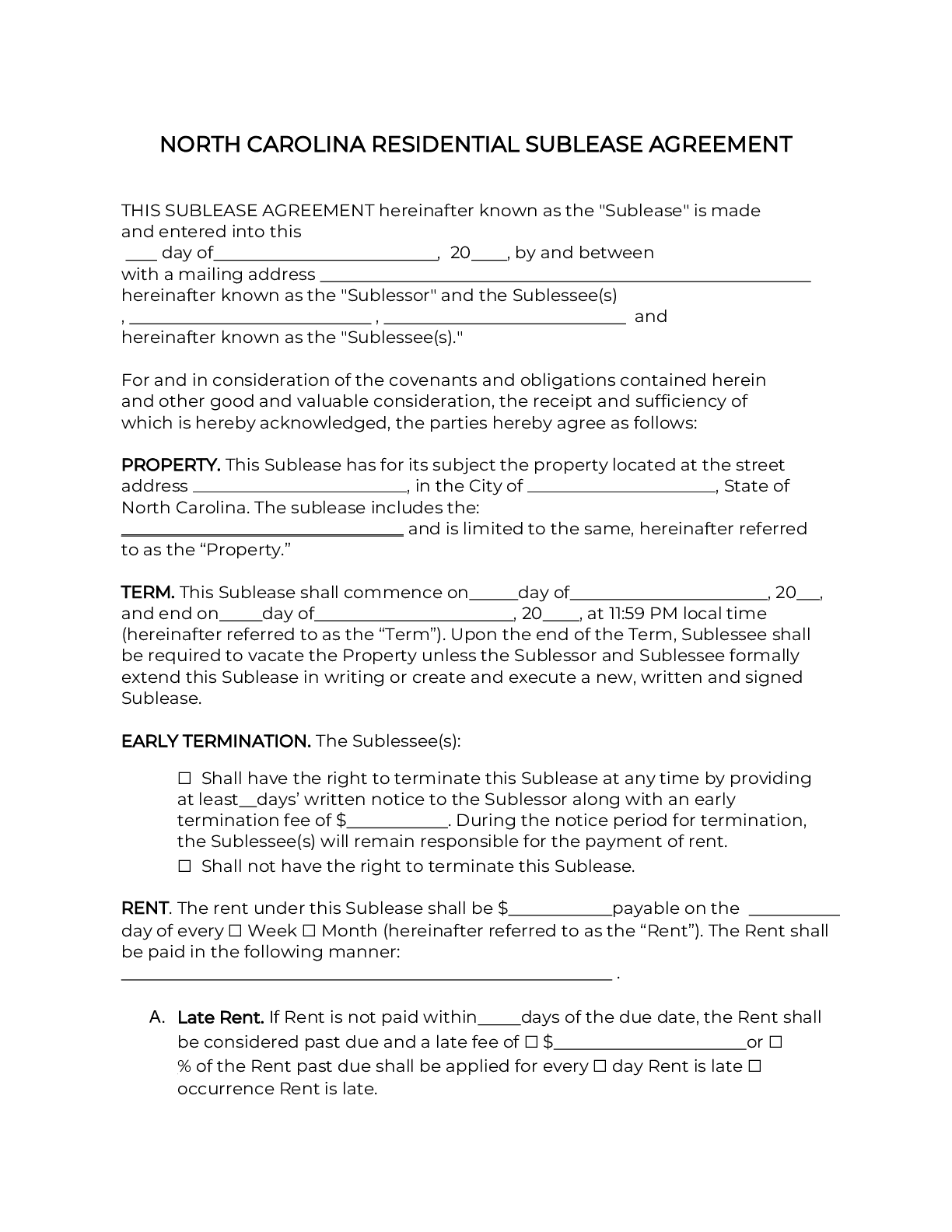
A North Carolina sublease agreement is a legal contract where a tenant rents property to a new tenant, usually with the landlord’s permission.
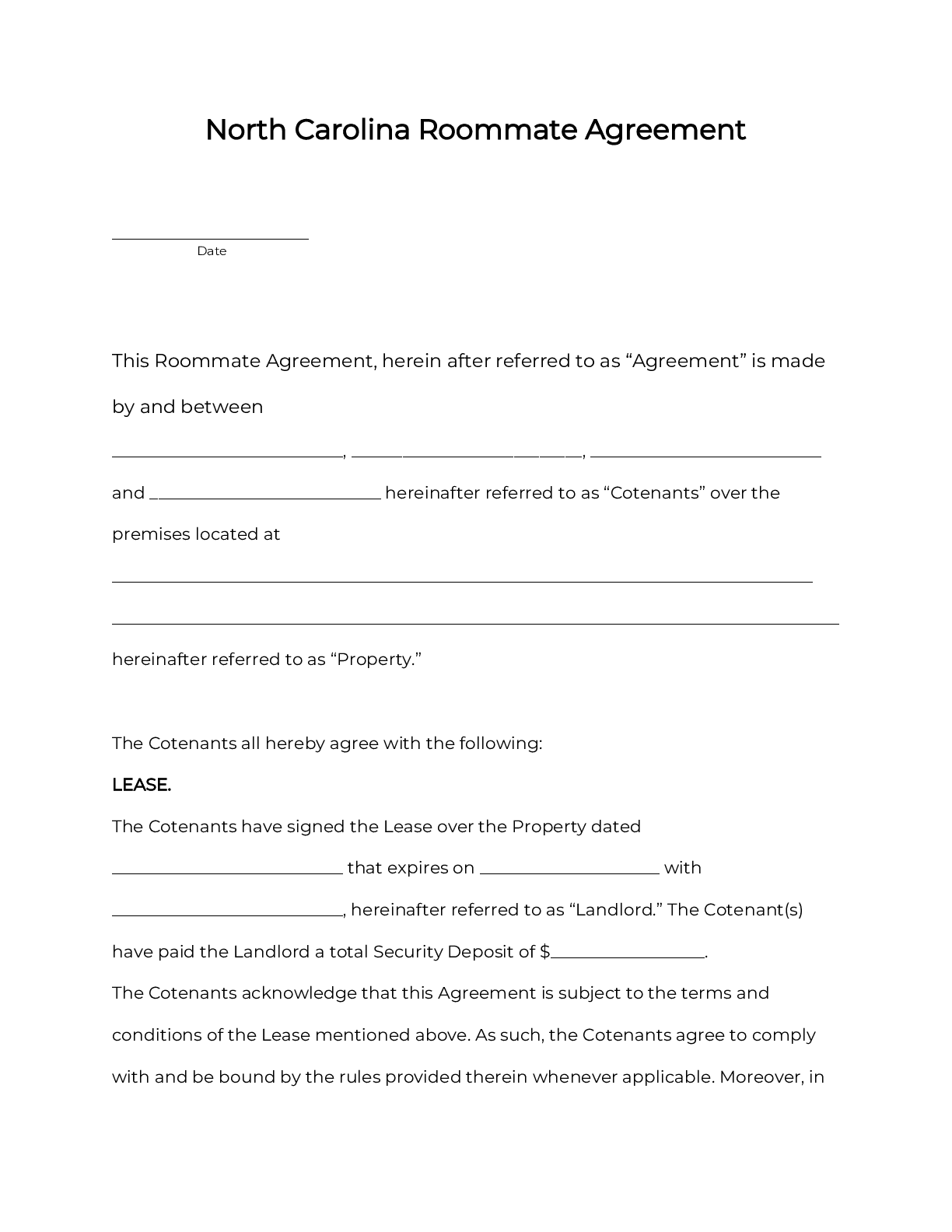
A North Carolina roommate agreement is a legal contract between two or more people who share a rental property according to rules they set, including for things like splitting the rent. This agreement binds the co-tenants living together, and doesn’t include the landlord.
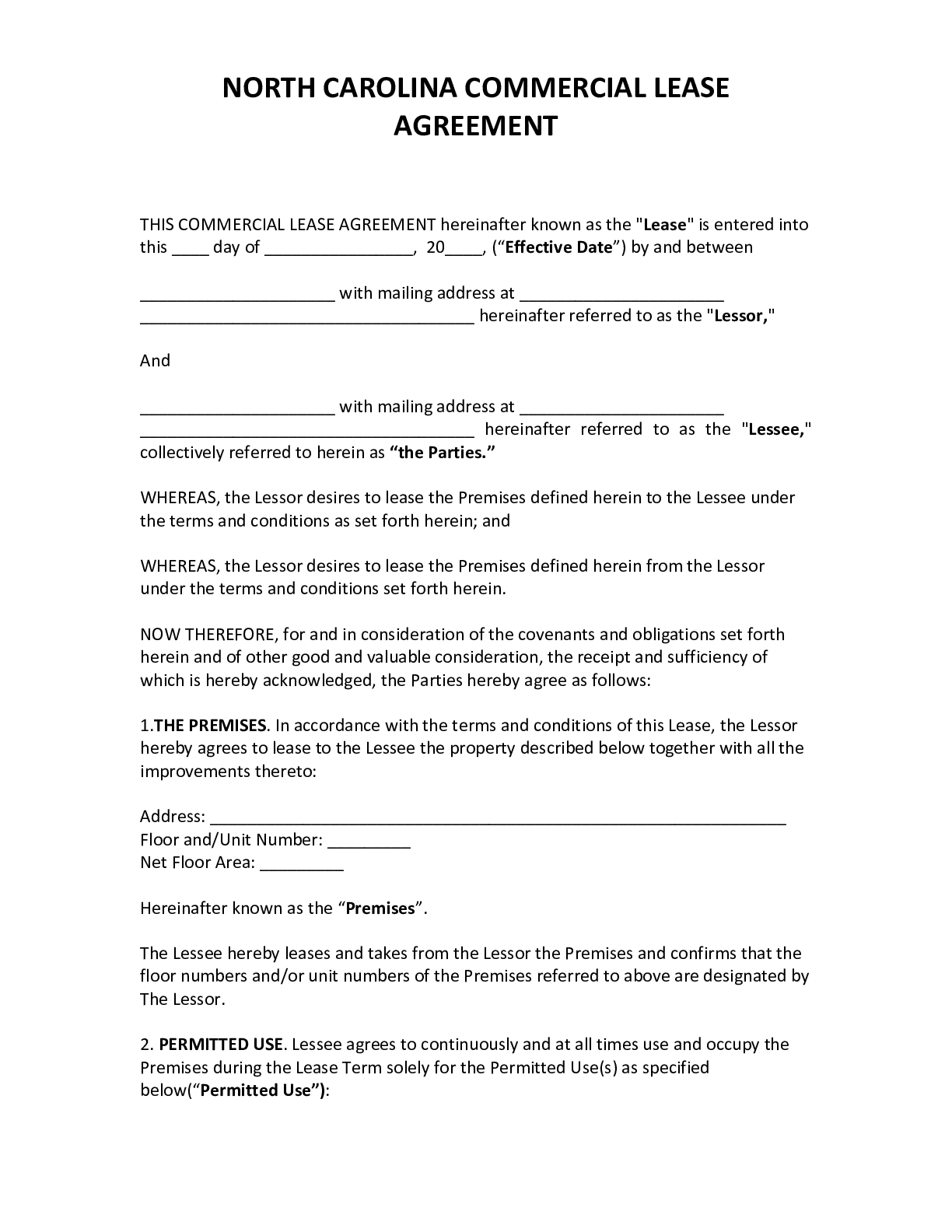
A North Carolina commercial lease agreement is a legal contract arranging the rental of commercial space between a landlord and a business.
Common Rental Agreements in North Carolina
- North Carolina Realtors Residential Rental Contract – North Carolina Association of Realtors members use this template. It provides provides an extensive list of rules and procedures, such as rent payments and termination procedure.
- North Carolina Realtors Short-Term Rental Agreement – North Carolina Association of Realtors members use this template for short-term rentals throughout North Carolina. It includes specifics such as occupancy limits and cancellation policies.
- North Carolina Association of Realtors Commercial Lease Agreement – North Carolina Association of Realtors members use this template for single-tenant commercial leases. It includes exterior sign installation rules, environmental compliance guidelines, and other detailed terms.
North Carolina Required Residential Lease Disclosures
- Late Fee Disclosure – North Carolina requires all late fees to be disclosed and agreed in the lease. They may not exceed $15 or 5% of the balance due (whichever is greater), or $4 or 5% of the balance (whichever is greater).
- Security Deposit Disclosure – North Carolina requires disclosure of the holding institution and account details (such as license and federal insurance) when a landlord collects a security deposit. The tenant must receive this information within 30 days of a lease beginning.
- Water Contamination Disclosure – North Carolina requires notice of any known contaminants above state guidelines when landlords charge tenants for water or sewage utilities.
- Lead Based Paint Disclosure – For any property built before 1978, federal law requires that a North Carolina residential lease must contain a lead-based paint disclosure with an EPA informational pamphlet, plus notice of any lead hazards on the property.
To learn more about required disclosures in North Carolina, click here.
Some North Carolina cities, like Charlotte and Raleigh, have more comprehensive rules than the statewide standard. Always check local laws.
North Carolina Landlord Tenant Laws







